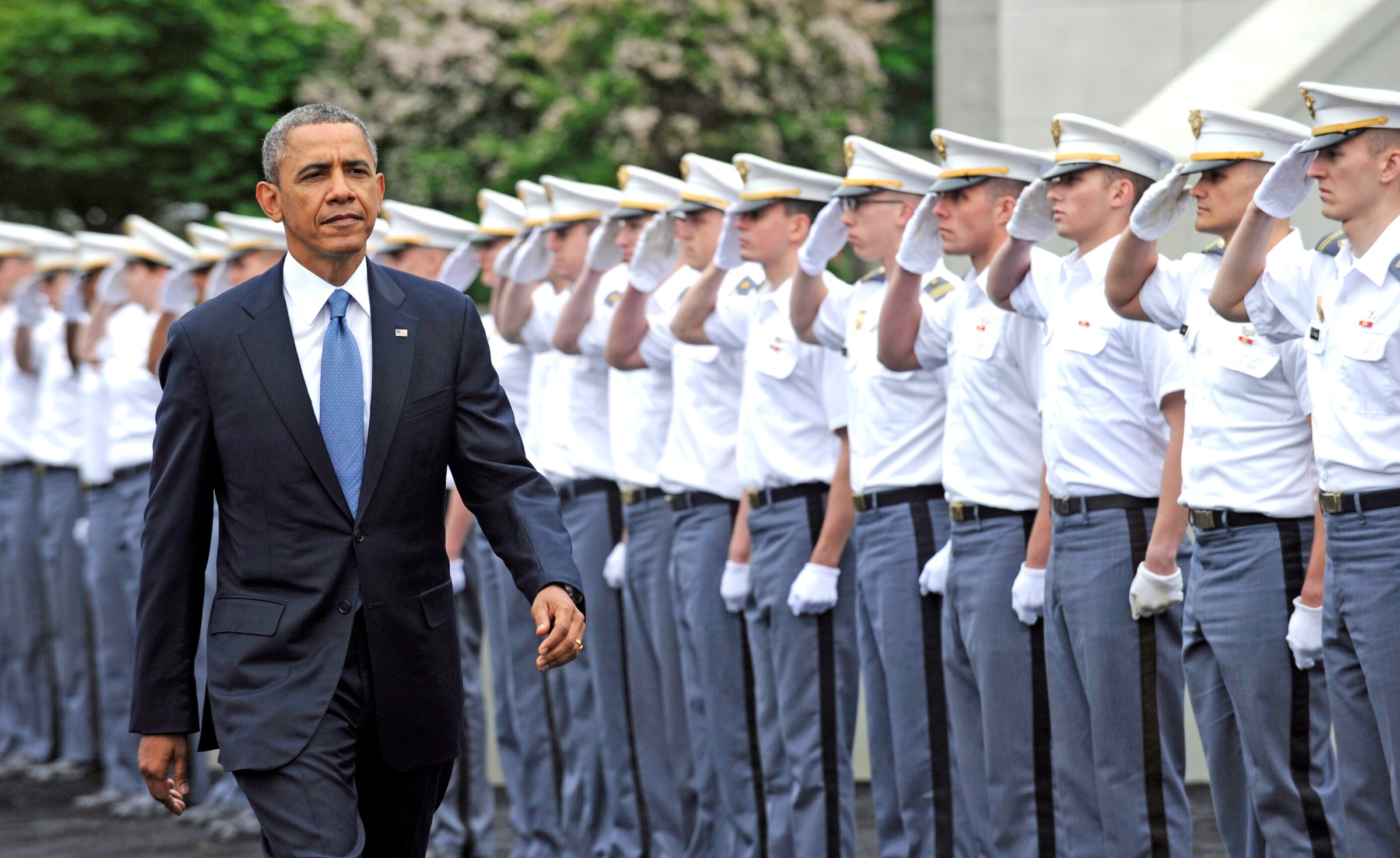
And he will be criticized for that. There was nothing “new” in his address to the West Point graduates, some will say. Others–neo-conservatives and blood curmudgeons like John McCain– will say that it was a ratification of the President’s policy of weakness and retreat. And while those of us who generally agree with the President on foreign policy might have hoped for some pyrotechnics, a more passionate defense of his policy, the substance of the speech was solid, just as the net substance of his actions overseas have been.
He began with a deliberate oversimplification:
Today, according to self-described realists, conflicts in Syria or Ukraine or the Central African Republic are not ours to solve. Not surprisingly, after costly wars and continuing challenges at home, that view is shared by many Americans.
A different view, from interventionists on the left and right, says we ignore these conflicts at our own peril; that America’s willingness to apply force around the world is the ultimate safeguard against chaos, and America’s failure to act in the face of Syrian brutality or Russian provocations not only violates our conscience, but invites escalating aggression in the future.
As a “self-described” realist, I can’t think of a member of my sect who believes that the conflicts mentioned are “not ours to solve.” We’re just extremely reluctant to use military force or—in the case of Syria—military supplies to solve them. There are other diplomatic, humanitarian and economic means that we need to use more effectively. The one initiative he did announce, the $5 billion counter-terrorist partnership fund, is a step in the right direction (especially if it helps ease the Syrian refugee crisis).
If there is a realist gripe against the President, it’s his handling of the details—his foreign policy staff isn’t very smart or subtle when it comes to the close work of diplomacy. Indeed, that’s an actual point of agreement between realists and interventionists: too often the President’s words have no consequences. He says “Assad Must Go” and Assad stays; indeed, Assad is bolstered by a chemical weapons deal that Obama blunders into. His Secretary of State, John Kerry, says something dangerously undiplomatic almost every week. Everything is ad hoc, in the moment; there is very little long-term strategic thinking.
That said, this was a realist speech. The President made no threats or promises that he couldn’t carry out, which was a relief. He refused to cave to his feckless domestic opponents–and he paid no commitment other than lip service to the human rights activists who represent a significant strain on his foreign policy staff. He offered no bright line “Obama Doctrine,” which is probably a very good thing. The last President who stood at West Point and offered a Foreign Policy Master Plan was George W. Bush, who made the case for pre-emptive war in 2002. We know where that led. The only appropriate doctrine in a world where the American military–and military spending–is peerless has to be subtle and humble: We’ll take each case as it comes. We’ll lead coalitions to help solve the problems of the world, but we also reserve the right to defend ourselves unilaterally against direct security threats. We will be prudent in word and deed. We won’t bluster about our “indispensability” but will prove it through our actions.
If there is a bright line test for presidential success in foreign policy, it’s Hippocratic: First do no harm. Obama has passed that test, with a few painful, if relatively minor, exceptions. He has ended wars, not started them, while using appropriate levels of force–drones, special operations–to continue the battle against Islamic radicalism. He has been calm and yes, realistic. He has been unfairly bludgeoned by opponents “engaged in partisan politics” and by a media that, all too often, looks at foreign policy as a “winning the day” proposition when the real purpose of diplomacy is to slowly win the future. He allowed himself to be pushed into making this speech by those forces. But he did not allow them to change his policy, for which we should be grateful.
More Must-Reads From TIME
- The 100 Most Influential People of 2024
- How Far Trump Would Go
- Why Maternity Care Is Underpaid
- Scenes From Pro-Palestinian Encampments Across U.S. Universities
- Saving Seconds Is Better Than Hours
- Why Your Breakfast Should Start with a Vegetable
- Welcome to the Golden Age of Ryan Gosling
- Want Weekly Recs on What to Watch, Read, and More? Sign Up for Worth Your Time
Contact us at letters@time.com